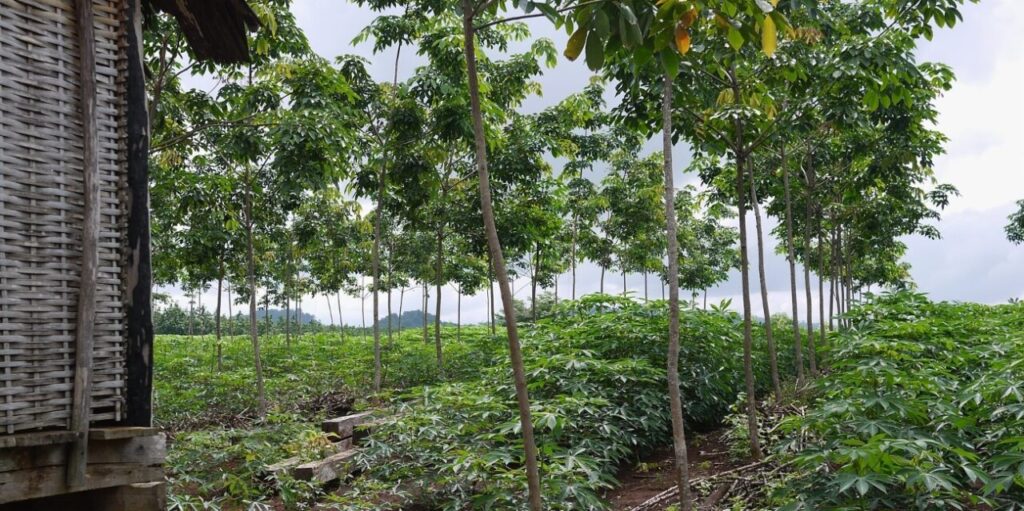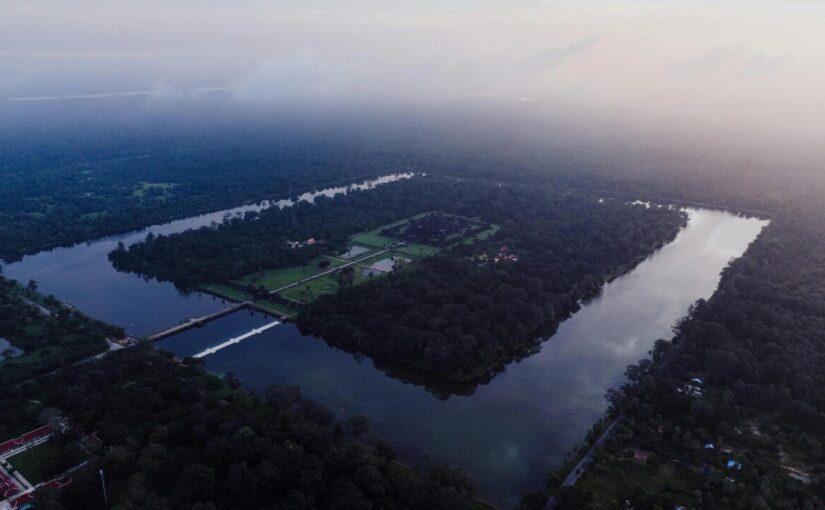IGDC Member Saba Joshi shares with us her IFJP blog about women’s collective action and resistance against land dispossession in contemporary Cambodia, following her ENLOE AWARD winning article on the subject.
On 7 August 2022, as she was sworn in as vice president of Colombia, Francia Marquez Mina created history. Marquez’s career, “from maid to Colombia’s first Black vice-president”, is nothing short of extraordinary, and even more so, if one considers that she gained public prominence as anti-mining activist in a country notoriously dangerous for environmental and land defenders. Among her most notable campaigns involved leading 80 women on a 560 km-long, 10-day march from her home district in La Toma (Cauca region) to Colombia’s capital, Bogota, to protest illegal gold mining in their community. Their protest led to a momentous agreement with the national government, which committed to stop mining activities in the La Toma region, and the creation of Colombia’s first ever national task force to curtail illegal mining.
As exceptional as her story is, Marquez’s risk-taking activism as a single mother belonging to the marginalised Afro-Colombian community, speaks to the experiences of women across the world that lead struggles to protect their land and local environment. Like Marquez, such women often belong to communities dependent on land as a source of livelihood and subsistence, as small farmers, rural workers, indigenous peoples etc. However, threats of dispossession and forced eviction also impacts the urban poor living in insecure housing. In all cases, women land and environment defenders defy odds and navigate increasingly dangerous spaces to advocate against powerful political and business interests, to secure their rights and access to land and nature.

In my article “Gendered repertoires of contention: women’s resistance, authoritarian state formation, and land grabbing in Cambodia”, I showcase the practices and protest routines of women land activists in Cambodia—a country that has become a leading example of gross environmental and human rights violations, and land conflict in Southeast Asia.
I became interested in women land activists while being based in Cambodia for my doctoral research between 2016 and 2017, when the country’s ruling government was being rocked by frequent attacks on the opposition party and civil society. Based on my observations of local politics on visits across the country and readings of existing literature, Cambodian women did not commonly occupy public roles and political spaces. And yet, some of the most outspoken and visible advocates against land dispossession were women, most of whom worked as farmers, vendors, or small business owners. I was curious as to why anti-land grabbing activism was a feminized political space, and why so many women, particularly from poor socio-economic backgrounds, joined public protests at a time when activists and civil society actors were in increasing danger.
In my article, I show how gender norms, discourses, and symbols play a key role in shaping the practices and public performances of resistance. My ideas grew from discussions with women activists who frequently legitimized their resistance to land grabbing in gendered terms, arguing that women were perceived as less threatening by the authorities. Despite this, nearly all the women I spoke with narrated incidents of being jailed, detained, beaten by security forced, and surveilled because of their resistance activities. Women activists were also often keen to highlight that they were ordinary “housewives” trying to defend their homes, families and communities. However, for many of them, their activism was at odds with their domestic responsibilities, and often led to marital strife and separation.
These contradictions and tensions between the public “framing” of their protests and the private consequences of activism, are at the centre of the four “repertoires” I outline in my article. Through these repertoires, Cambodian women land activists draw on mainstream gender ideals—such as feminine submissiveness, women’s primacy in the household, self-sacrificing motherhood— in their public protests and simultaneously subvert these ideals through resistance. At the same time, I argue that these gendered notions do not exist in a vacuum but are the result of the interaction between the state and its dissenters. In this way, women’s public protests are productive of a gendered public sphere in authoritarian Cambodia.
Ultimately, my article argues that we need to pay attention to the political and gendered character of conflicts over land, nature, and the environment. The example of Cambodia’s land activists and Colombia’s Francia Marquez—whose success as a community leader and activist became a springboard for her career in “formal politics”— alert us to the political significance of women’s relationships with land and other natural resources. For millions of women living and working in rural areas or precariously employed in urban centres, the battle to protect the environment is intimately tied to their survival and oftentimes, identity. While Cambodian women activists may not speak the language of “women’s empowerment” or seem radical in their invocation of traditional feminine ideals such as being housewives and mothers, a closer look reveals the tensions, creativity, and subversion at play in their formulation of these notions and the immense bravery involved in advocating for justice, “until dignity becomes a habit”.
About the author

Saba Joshi is a Lecturer (Assistant Professor) in Gender and Development, at the Department of Politics at the University of York. Her research and teaching interests broadly lie in the fields of feminist political economy, rural social movements, agrarian politics and the politics of dispossession in South and Southeast Asia.

